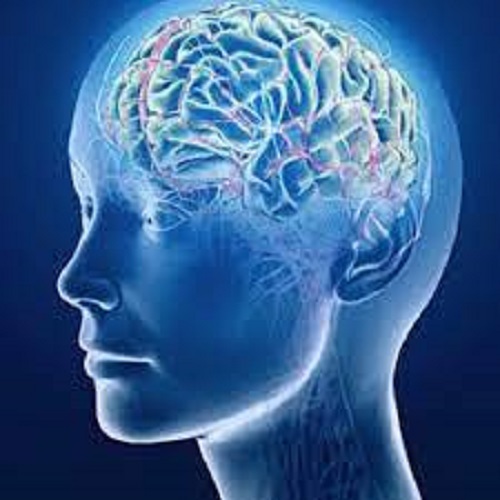Understanding the Vital Role of an Eating Disorder Therapist
Types of Eating Disorders: A Comprehensive Overview
When it comes to the intricate world of mental health and well-being, the role of an eating disorder therapist stands out as a crucial pillar of support. These dedicated professionals play an integral role in helping individuals navigate the complexities of eating disorders, fostering healing, recovery, and a healthier relationship with food. In this article, we will delve into the essential responsibilities of an eating disorder therapist, shedding light on the various types of eating disorders they address.
Unveiling the Responsibilities of an Eating Disorder Therapist
Eating disorder therapists, also known as eating disorder counselors, are skilled experts who provide invaluable guidance to individuals struggling with a wide array of eating disorders. cand non-judgmental environment where clients can openly discuss their challenges, emotions, and concerns. By adopting an active listening approach, therapists establish a strong rapport, allowing them to understand their clients’ unique circumstances and tailor treatment plans accordingly.
Crafting Tailored Treatment Plans
One of the core duties of an eating disorder therapist is to create personalized treatment plans that cater to the specific needs of each client. This involves a comprehensive assessment of the individual’s physical health, mental well-being, and any underlying factors contributing to the eating disorder. By gathering this information, therapists can design a holistic plan that combines various therapeutic techniques, nutritional guidance, and psychological support.
Providing Cognitive-Behavioral Guidance
Cognitive-behavioral therapy (CBT) forms a cornerstone of the therapeutic approaches employed by eating disorder therapists. This evidence-based technique aims to identify and modify negative thought patterns and behaviors associated with disordered eating. Through regular sessions, therapists help clients recognize triggers, develop coping strategies, and reframe their perceptions of self-image and body.
Fostering Nutritional Education
Education about proper nutrition is another vital component of an eating disorder therapist’s role. Many individuals with eating disorders exhibit distorted beliefs about food, body image, and weight. Therapists work to dispel these misconceptions, offering accurate nutritional information and promoting a balanced approach to eating. This education empowers clients to make informed choices and develop healthier eating habits.
Exploring the Spectrum of Eating Disorders
Eating disorders manifest in various forms, each presenting its own set of challenges and complexities. Here, we briefly outline some of the most prevalent types of eating disorders that eating disorder therapists address:
1. Anorexia Nervosa
Anorexia nervosa is characterized by extreme restriction of food intake, leading to severe weight loss. Therapists assist individuals in uncovering the underlying psychological factors contributing to their disordered eating patterns while guiding them towards healthier eating habits and body acceptance.
2. Bulimia Nervosa
Bulimia nervosa involves cycles of binge eating followed by purging through methods such as vomiting or excessive exercise. Therapists work with clients to break this harmful cycle, develop coping strategies, and enhance self-esteem.
3. Binge Eating Disorder
Binge eating disorder entails consuming large amounts of food within a short period, accompanied by a loss of control. Eating disorder therapists help clients regain control over their eating behaviors, addressing emotional triggers and fostering a positive relationship with food.
4. Avoidant/Restrictive Food Intake Disorder (ARFID)
ARFID is characterized by an extreme avoidance of certain foods or textures. Therapists assist individuals in expanding their food repertoire and addressing any sensory sensitivities or anxieties associated with eating.
Transitioning Towards Recovery
In conclusion, the role of an eating disorder therapist transcends that of a conventional counselor. These professionals offer a beacon of hope and healing for individuals grappling with complex eating disorders. Through tailored treatment plans, cognitive-behavioral guidance, nutritional education, and unwavering support, therapists pave the way for clients to embark on a journey of recovery, self-discovery, and overall well-being.
Remember, seeking help is a sign of strength, and with the guidance of an eating disorder therapist, individuals can navigate the path to recovery and rediscover a harmonious relationship with both food and themselves.
Eating disorders encompass a range of conditions that negatively impact an individual’s relationship with food, body image, and overall well-being. They can lead to severe physical health issues and emotional distress. The role of an eating disorder therapist is instrumental in providing guidance, support, and treatment to individuals on their journey to recovery.
Eating disorder therapists possess specialized training and expertise in dealing with these conditions. They create a safe and non-judgmental space where clients can openly discuss their thoughts and feelings related to food and body image. By fostering a collaborative therapeutic relationship, therapists empower clients to explore the underlying causes of their eating disorder and develop healthier coping mechanisms.
Anorexia Nervosa is characterized by extreme restriction of food intake, often driven by an intense fear of gaining weight. Bulimia Nervosa involves episodes of binge eating followed by purging behaviors, such as self-induced vomiting. Binge-Eating Disorder centers on consuming large amounts of food in a short period, accompanied by feelings of loss of control. Avoidant/Restrictive Food Intake Disorder (ARFID) is characterized by limited food preferences and aversions to certain textures.
CONCLUSION
Recognizing the signs and symptoms of eating disorders is essential for early intervention. Physical indicators include weight loss, fatigue, and changes in appearance. Emotional signs encompass anxiety, depression, and a preoccupation with body image. Triggers for eating disorders can vary, including societal pressures to achieve unrealistic body standards and underlying emotional struggles.
The therapeutic process involves a comprehensive assessment to determine the appropriate treatment plan. Therapists utilize evidence-based approaches such as Cognitive Behavioral Therapy (CBT) and Dialectical Behavior Therapy (DBT) to address the root causes of the disorder. Family therapy is often incorporated to provide a holistic support system.
Family and friends also play a vital role in an individual’s recovery journey. Their understanding and support can significantly impact the healing process. Education about eating disorders equips loved ones with the tools to provide effective assistance and create a nurturing environment.
Preventing eating disorders involves community awareness and education to challenge harmful stereotypes and behaviors. Early intervention is key, as identifying warning signs and addressing them promptly can prevent the escalation of the disorder.
In conclusion, the role of an eating disorder therapist is multi-faceted, ranging from diagnosis and treatment to relapse prevention. Their expertise in understanding the complexities of eating disorders allows them to guide individuals towards a healthier relationship with food and themselves. By addressing the unique needs of each client, eating disorder therapists are instrumental in fostering recovery and restoring overall well-being.



